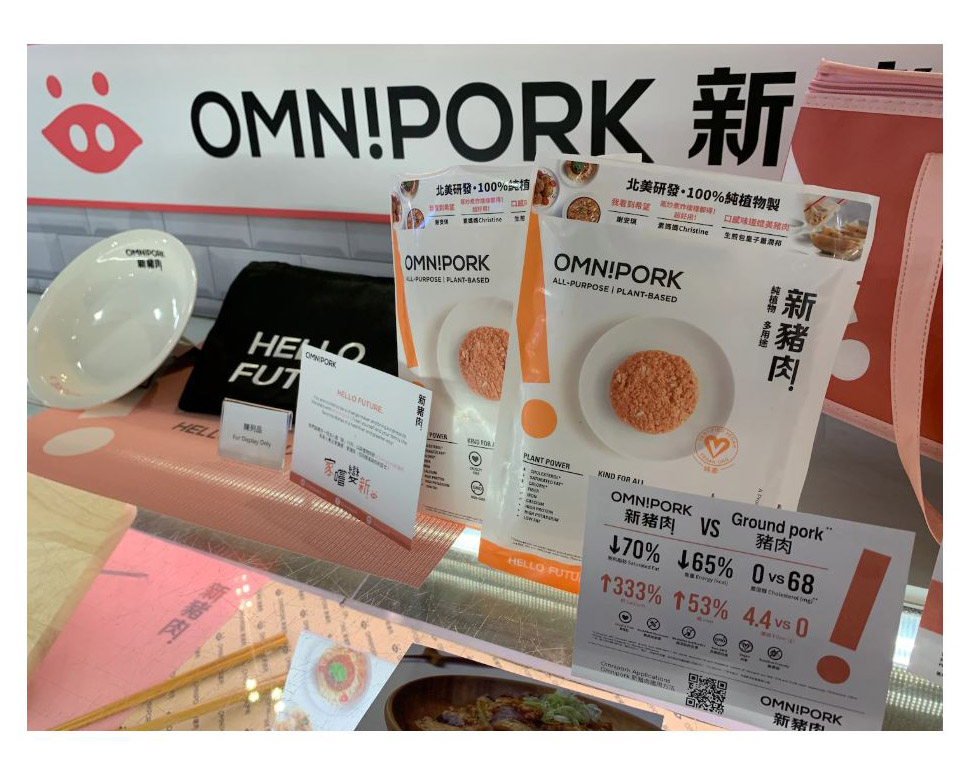Original Article: The Washington Times
HONG KONG — For much of January and February, Hong Kong was awash in cute pigs. They smiled from large, sculpted displays in mall atriums and building lobbies. They dangled by their stuffed pink tails from the hands of small children in parks. The post office issued pig stamps, the fire department released a porcine version of its viral “Anyone” mascot, and marketers throughout the city oinked up their brands with often tenuous rationale (Mentos seemed to want you to believe pigs could be freshmakers).
All this, because the 12 lunar months roughly corresponding to 2019 make up the Year of the Pig in the Chinese zodiac. In 2020, the city gets rats.
Over the past few weeks, most of the larger displays came down, many residents removed the flat-nosed decorations from their apartment doors, and the city more or less went back to seeing pigs publicly displayed the way they usually are — as dismembered chunks of cooked and uncooked flesh, hanging from hooks.
For these more practical pig products, local entrepreneur David Yeung is offering an alternative this year: Omnipork, a mix of pea protein, soy, shiitake mushrooms, rice and other ingredients, designed to mimic minced pork.
While American attention on meat substitutes appears largely focused on imitating chicken and perfecting veggie burgers, Yeung, an entrepreneur who grew up in Hong Kong before attending Columbia and spending much of his 20s in New York, has turned his company’s attention to imitation pork designed for the Asian market. He says that even when the big fake meat producers look at creating artificial pork products in the United States, “It is sausage, or bacon, or ham, which is completely different from how Asian people use pork.”
In Hong Kong, as in many parts of Asia, “Pork is a very strange ingredient,” in the sense that, as Yeung explains, “It is almost a given. They don’t even put it on the menu, and then when they serve it, you’re like, ‘I didn’t order pork. You didn’t mention it on the menu, I didn’t order it, but it’s there.’ When you order dim sum, shrimp dumplings — there’s pork in it. Turnip cakes! It is very hard to explain to a non-Asian person. It is ubiquitous.” And it’s that ubiquity, that omnipresence, that made simple ground pork an obvious place for his team to try to make a big impact on what they see as one of the greatest threats facing humanity today: resource-intensive, industrial meat production.
Two years ago, the Economist called China’s appetite for pork “a danger to the world,” with gasses from massive manure lagoons contributing to climate change and countries far beyond Asia altering landscapes to grow the soybeans used to feed pigs. The piece detailed agricultural shifts in South America that resulted in traditional cattle ranching being pushed further and further into remote, often previously forested areas, as millions of hectares of land were given over to soy.
According to a recent U.N. report, global pork production is estimated to create emissions resulting in the equivalent influence on climate change of about 668 million tons of CO2. That’s not nothing, but it makes pork a much lesser offender than dairy and beef cattle, which the same report says account for 65 percent of livestock emissions, or 4.6 billion metric tons of CO2-equivalent impact.
In fact, pound for pound of carcass weight, pork has such drastically lower emissions than other non-poultry livestock that the United Kingdom’s Committee on Climate Change has suggested increasing pork and chicken consumption as a way to combat the more harmful effects of raising beef.
But Yeung says he doesn’t think switching one kind of meat for another is a real solution to the world’s problems. As a longtime vegetarian, an early investor in the American company Beyond Meat, and the Hong Kong distributor for everything from Beyond Burgers to several nondairy cheese and veggie chicken products, Yeung sees animal farming itself as an obsolete system, wracked with inefficiencies that are bad for the planet. “China has . . . I think just announced 1.4 billion people, but it also has close to 700 million pigs,” he says, quoting the higher side of estimates for both populations, “How do you feed 700 million pigs? Feeding the pigs before they’re fed to us is an archaic, outdated food supply chain. We should not be getting our protein this way anymore.”
He wants consumers to have enough appealing options to be able to forgo animal products altogether without much sense of personal sacrifice. To do that, entire menus worth of ingredients will need to be reimagined in plant-based form, from the milk in Hong Kong’s classic milk tea (his team favors Oatly) to the eggs at breakfast (his company distributes Just egg substitutes) and all the many dishes in which foreigners are occasionally surprised to find pork.
After nearly two years of research and development, his company, Right Treat, launched Omnipork as a wholesale product for chefs and restaurants in April of last year and made it available to consumers this past November. A 230-gram package (about 8 ounces) retails for around $5.50.
While it lacks the pink, noodle-like shape that real ground pork often gets from passing through the holes of commercial meat grinders, Omnipork does credibly resemble the genuine article at first glance. It’s even more convincing in the hands of such talented chefs as Jowett Yu.
Though he’s not a vegetarian himself, his wife is, and Yu is always keeping his eyes out for meatless options she might like. When he heard about Omnipork at the Food’s Future Summit in Hong Kong last year, he contacted Right Treat to give it a try, and eventually added it to the vegetarian mapo tofu at his restaurant in the city’s SoHo district. Now he sells about 10 to 16 of the dishes a night, and his kitchen will make off-menu Omnipork dumplings if guests call in advance. He’s seen customers genuinely surprised it’s not actual pork.
“It has a tendency to stick more to the cooking surface, so that’s a challenge,” Yu says, “but other than that, the texture is like pork mince, and the flavor, especially caramelized, is like pork.”
Mock pork is not new to Hong Kong. Alongside fake abalone, chicken and goose at the Po Lin Yuen Vegetarian Food restaurant in the Sai Wan area, co-owner Selina Yeung (no relation to David) sells imitation char siu, and a chopped version labeled in English as “BBQ Veg. Pork.” Her family has been in this business for close to 40 years, catering to a mostly older clientele, who often cite religious reasons for abstaining from meat. The chicken and goose she sells are soy-based, while both the pork dishes and abalone are made from wheat gluten, meaning artificial shellfish and pig meat share the same texture.
She has never heard of Omnipork, but an animated discussion broke out among her staff in Cantonese at its mention. Maybe there will be a market for it; a younger crowd has begun seeking out more vegetarian and vegan options at her shop lately, and at the very least, “They want to try vegetarian for lunch, meat for dinner,” she says.
A few train stops away in Wan Chai, chef Chan Hon Cheong, who heads the kitchen in the Grand Hyatt’s One Harbour Road dim sum restaurant and has more than 25 years experience cooking classic Chinese dishes, began putting Omnipork items on the menu after a supplier offered his team samples last year. Customers have been receptive, but as far as Omnipork tasting like the real thing, he wrote through a translator that, “It depends on the individual dish. The way of mixing the ingredients and seasonings make a big difference.”
Getting the flavor right is one thing; getting people to taste it is another.
At the Causeway Bay branch of popular local lunch spot King of Sheng Jian, Right Treat has clearly taken a page from the in-restaurant advertising strategies of its Beyond and Impossible burger counterparts. Omnipork posters hang on the walls above diners, postcards are taped to every tabletop, and branded paper flags fly from toothpicks over orders of meat-free xiao long bao. The bao are priced at about $5 for a plate of four dumplings, a relatively affordable price for downtown Hong Kong, and just about 6 cents each more than the real deal.
This aggressive marketing and pricing have helped fuel Omnipork’s growth into more than 100 restaurants throughout Hong Kong, Macau and Singapore, but Yeung thinks the driving factors in the world’s biggest pork market, China, will be twofold: aspirational lifestyles and concern for food safety.
On that first point, he cites Starbucks. “For 5,000 years, Chinese people don’t drink coffee, we drink tea. So, what the heck does Starbucks have to do in China? They should have no business here.” According to Yeung, it’s all about the lifestyle, and there he already has a big advantage: Before developing Omnipork, he started Green Common, a chain of seven sleek, full-service vegan restaurants, with adjacent health stores stocking organic quinoa pasta, locally made “Basil Restoring Shampoo” and now, of course, Omnipork.
But where aspirational lifestyles sell products based on hope, the food safety angle depends on fear. It’s a fear with which mainland Chinese are very familiar, having lived through numerous scandals involving problematic vaccines, counterfeit medicines and tainted food, including the 2008 infant formula disaster that killed at least four babies, hospitalized tens of thousands more and sent so many Chinese residents in search of legitimate formula that Hong Kong had to limit the amount visitors could leave the city with for years afterward.
Even now, as images of lovable, pink, Peppa types abound, another pig poster has begun to appear around the city’s commuter train stations. This one is government-issue, and features a dark pig silhouette against a smeared, filth-brown background. “Guard against African Swine Fever,” it warns. “Do not bring raw meat into Hong Kong illegally.”
“ ‘Do this for good. Do this for animals. Do this for the environment.’ In China, that won’t work.” Yeung says. Consumer safety, however, drives sales.
All of this is going to keep Right Treat busy in Asia for the foreseeable future. Beyond China, Yeung says, interested investors and distributors in Vietnam, Thailand, Singapore and even majority Muslim countries such as Malaysia, Indonesia and the United Arab Emirates (where they’ll most likely drop the pork part of the name and just call it a “halal ingredient”) have reached out to see about bringing Omnipork to their countries.
Americans will have to wait their turn. There are no plans to ship Omnipork stateside anytime soon.


